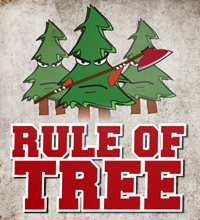Will Mark Appel Shun the Pirates and Return to Stanford?
The Pittsburgh Pirates have until 2 p.m. PT Friday to sign first-round draft pick Mark Appel. According to CBS' Jon Heyman, that might not happen.
Mark Appel, rhp picked No. 8 overall, is leaning against signing w/ the pirates for $3.8M to instead return to stanford
— Jon Heyman (@JonHeymanCBS) July 9, 2025
Under the terms of the league's most recent labor deal, teams are alloted a pool of bonus money to spend on players taken in the first 10 rounds. The $3.8M figure Heyman cites is the maximum Pittsburgh can offer Appel without forfeiting a first-round pick in next year's draft. If the Pirates don't sign the Stanford ace, they will receive the No. 8 pick in next year's draft in addition to their other first-round pick.
So what are the odds that Appel, who is represented by Scott Boras, will turn down the Pirates' offer and return to the Farm? According to ESPN's Keith Law, it's a defensible choice. From his ESPN.com chat last week: "Given what I know of next year's draft class, it would be easy for him to say he'd be the top guy next year, so why should he sign for half that dollar figure (or less) now?"
It's also possible that Appel is waiting out the other unsigned top draft picks in this year's class as a means of gaining leverage. From the same chat:
There's actually a huge incentive to be the last unsigned elite guy in the draft this year. Any one of Appel, Almora, or Gausman would be the best guy in next year's draft for me, at least right now. If one doesn't sign, or is the last unsigned guy, his leverage is significant. But if all three should fail to sign, the strategy is a flop.
Almora reportedly signed with the Cubs earlier today, while the Orioles continue to negotiate with Gausman. Baltimore drafted the righty out of LSU with the No. 4 pick.
College players taken in the first round who don't sign are a rarity. While plenty of top high school prospects elect to go to college instead of starting their professional careers, I counted three college players who were selected in the first round* and didn't sign over the last 10 years. All three took different paths to the pros.
-
Texas A&M RHP Barret Loux was drafted by Arizona with the No. 6 pick of the 2010 draft. The Diamondbacks elected not to sign Loux due to concerns about his health, prompting Bud Selig to declare him a free agent. The Rangers signed Loux, who is 12-1 with a 3.61 ERA at Double-A Frisco.
-
Missouri RHP Aaron Crow was drafted with the ninth pick of the 2008 draft by Washington. The Nationals offered Crow a Major League contract and a $3.5 million bonus, which was more than what the Orioles paid the first pitcher taken in the draft, No. 4 pick Brian Matusz. After talks with the Nationals broke down, Crow signed with the Forth Worth Cats, an independent pro team. Crow re-entered the draft in 2009 and went 12th to the Royals, who awarded him a three-year Major League contract. That Nationals used their compensation pick to select Stanford pitcher Drew Storen.
- Rice RHP Wade Townsend was drafted eighth overall by Baltimore in 2004. The Orioles offered Townsend $1.85 million, but lost his rights when he opted to return to school. Tampa Bay drafted Townsend eighth overall in 2005 and signed him to a $1.5 million minor league contract.
*Tennessee pitcher Luke Hochevar was selected in the supplemental first round of the 2005 draft by the Dodgers and didn't sign. After a year with the independent Fort Worth Cats, Hochevar was taken No. 1 by the Kansas City Royals.
My best guess: The negotiations go down to the wire, but Appel follows in Ty Gaffney's footsteps and signs with the Pirates. What do you think?
![]() 1 comment
|
Add comment
|
0 recs |
1 comment
|
Add comment
|
0 recs |
Do you like this story?
Comments
I don't think he'll sign
It was mostly a shock to a lot of observers and casual baseball followers when he wasn’t the first one drafted this year, much less top-5 and dropped all the way down to 8. If he can stay healthy and avoid another FSU meltdown, he’ll almost assuredly go out on top next year for much bigger bucks.
The downside, obviously, is that his stock potentially doesn’t improve and he doesn’t get a better offer/still is drafted 8th (or worse) overall, like Townsend.
** Rule of Tree ** Pounding the Rock ** Battle of Cali ** Fear the Fin ** Athletics Nation ** Niners Nation **
by RedOscar on Jul 10, 2025 1:51 PM PDT reply actions
Something to say? Choose one of these options to log in.

- » Create a new SB Nation account
- » Already registered with SB Nation? Log in!

 by Scott Allen on
by Scott Allen on 










